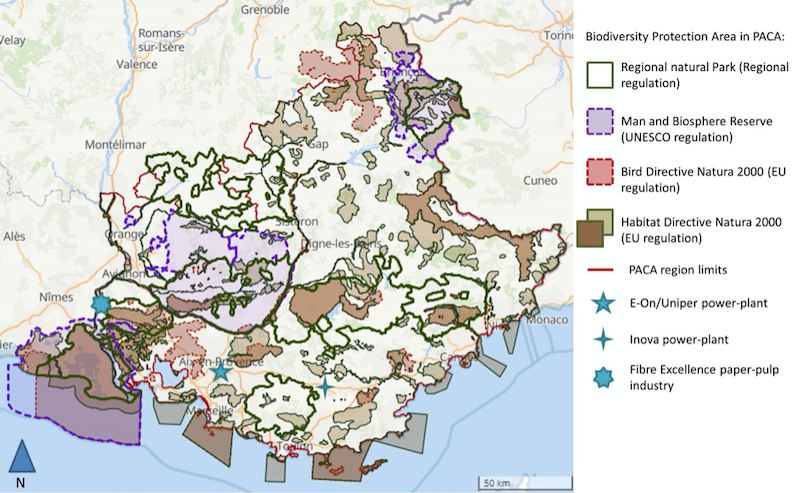Winners and Losers in Energy Transition: Study Case of Wood Biomass Power-Plants Implementation in France
Sansilvestri, R.; Cordier, M.; Lescuyer, T. Winners and Losers in Energy Transition: Study Case of Wood Biomass Power-Plants Implementation in France. Forests 2021, 12, 1139.
https://doi.org/10.3390/f12091139
Résumé
International policies promote renewable forms of energy to mitigate climate change. In Europe, the production of electricity using wood biomass represents one of the most popular energy alternatives. In 2012, France initiated a large-scale strategy to develop wood biomass energy. The biggest wood biomass power-plant project has been developed in the French Mediterranean area and its huge size raises several issues for the short- and long-term sustainability of local forests and associated economic sectors. The French Mediterranean forests provide four types of economic goods (private, club, common, and public goods) and multiple ecosystem services, which makes them complex to manage under an energy transition policy. In this paper, we applied three qualitative methods, namely interviews, participative workshops, and observant participation, and three conceptual models, namely (i) Ostrom’s (2010) self-organization key conditions, (ii) the types of economic goods classified according to their excludability and rivalry properties, and (iii) the ecosystem service categorization system of the Millennium Ecosystem Assessment (2005). With our methods, we show that the renewable strategy chosen in France replicates the current centralized production model based on fossil and nuclear fuels. Thus, we demonstrate that European, national, and local authorities fail to consider the multiple ecosystem services that forest management strategies should include to face the energy transition, climate change, and the other ecological challenges of the 21st century.

Figure 1: Map of PACA environmental regulations decided at upper scales (global scale: man and biosphere reserve labelled by UNESCO; European scale: Natura 2000 area; National and regional scales: Regional Natural Parks) and location of the three main industrial actors (E-On/Uniper, Inova and Fibre Excellence), modified from the “Système d’Information Territorial” of the Regional Natural Parks of PACA Institute.
Mots-clés
common-pool resource management; local vs. global; economic oligopoly; panacea paradigm; renewable energy; sectoral organization
